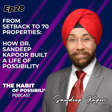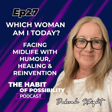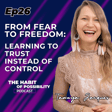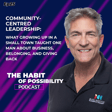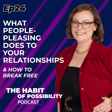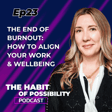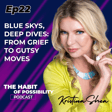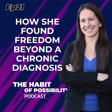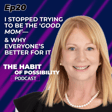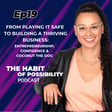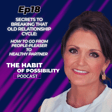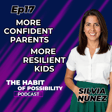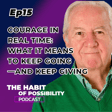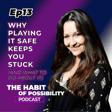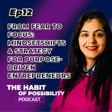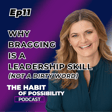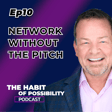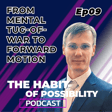
New Options for Chronic Pain: A Whole-Person Approach from a Pharmacist*
Learn how DNA and your subconscious mind influence chronic pain—and how pharmacogenomics, hypnosis, and holistic tools can support personalized pain management.
In this episode, you will hear pharmacist Stacey D’Angelo’s personal story with chronic back pain and what finally helped her. Together we will:
- Learn what deprescribing really means—and why it matters for people living with chronic pain
- Discover how pharmacogenomics and DNA can help personalize medication decisions
- Explore the complex relationship between medications, mindset, and emotional healing
- Understand how medications for anxiety, depression, and pain can become less effective over time
- Hear why slow, supported withdrawal from medications can lead to greater clarity and wellbeing
- Explore natural and holistic alternatives like hypnosis, supplementation, and mindset work
- Understand why emotional support, collaboration, and personalized care are essential
- A must-listen if you're wondering, “Do I still need this medication?” or supporting a loved one who is
Stacey D’Angelo, BScPharm, RPh, is a pharmacist and founder of Your Simple Health, an independent practice focused on deprescribing and medication optimization. She helps people reduce or simplify their medications safely, using a personalized and holistic approach that considers lifestyle, genetics, and overall wellbeing.
Stacey began her career in long-term care, where she gained extensive experience managing polypharmacy in older adults. Over time, she became passionate about supporting patients through complex medication tapers and empowering them to take an active role in their health. She now partners with individuals and healthcare providers to create thoughtful deprescribing plans and is currently completing certification as a health and wellbeing coach to further support her clients—many of whom are navigating chronic conditions such as pain, anxiety, and insomnia.
You can connect with Stacey here:
Website: https://www.simplehealthpharmacist.com/
LI: https://www.linkedin.com/in/staceydangelo/
IG: https://www.instagram.com/yoursimplehealth/
FB: https://www.facebook.com/profile.php?id=100085572370229
Book a complimentary call: https://yoursimplehealth.janeapp.com/#/staff_member/1/treatment/1
If you would like to learn hypnosis for pain management, you can schedule a free consultation with Robbie Spier Miller:
https://www.hypnosistrainingcanada.com/book-now
*Each person’s situation is different, and the information shared in this podcast is not medical advice. Be sure to consult with your doctor and pharmacist when making decisions about your medication and health situation.
